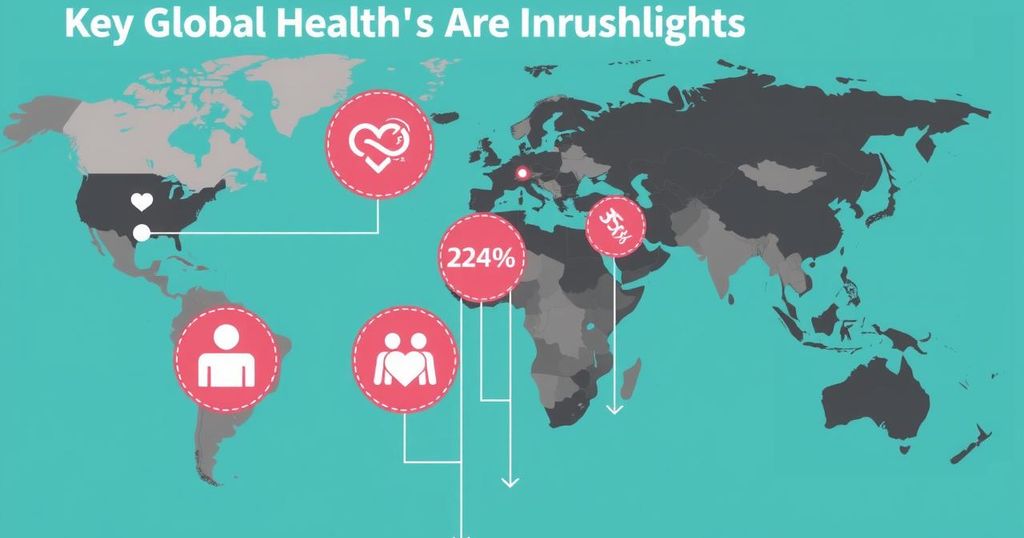Key Global Health Issues in 2024: A Comprehensive Overview

In 2024, global health discussions were dominated by climate change impacts, infectious disease outbreaks, technological advancements in healthcare, women’s health disparities, workplace wellness, and antimicrobial resistance. Reports indicated potential future health crises linked to climate, while vaccine misinformation contributed to rising disease rates. Technological improvements brought both opportunities and challenges, and global commitments aimed to combat AMR indicators were emphasized. Addressing these interconnected issues is crucial for future health outcomes.
In 2024, global health was at the forefront of discussions, particularly at the World Economic Forum, addressing critical issues such as climate change, communicable diseases, and health equity. The report “Quantifying the Impact of Climate Change on Human Health” warned that inadequate action against climate threats could lead to significant morbidity and economic losses, predicting millions of premature deaths by 2050 due to rising pathogens and worsening pollution.
In addition, communicable diseases such as measles and dengue surged, exacerbated by vaccine misinformation and increased cases of mpox declared a public health emergency by the WHO. Technological advancements, particularly in generative AI, were showcased for their potential in enhancing healthcare delivery. However, challenges in reliable applications remained, especially in lower-income nations.
Women’s health continued to receive attention, revealing significant disparities despite women living longer. A report uncovered concerning statistics indicating women experience more years of poor health, underscoring the need for their voices in health discussions. Furthermore, the link between workplace conditions and health was highlighted, with poor employee mental health being identified as detrimental to economic performance.
Antimicrobial resistance (AMR) persisted as a formidable global challenge, prompting intergovernmental action at the UN’s AMR High-Level Meeting. The necessity for improved access to antibiotics was emphasized, along with goals for reducing AMR-related fatalities. Collaborations aimed at tackling climate-related health threats are ongoing, demonstrating a collective effort to address these multifaceted health issues globally.
The narrative surrounding global health in 2024 indicates an urgent response to numerous interconnected challenges. First, climate change impacts are increasingly recognized as paramount for both individual health and systemic healthcare issues, prompting detailed reports on potential future adversities. The resurgence of vaccine-preventable diseases highlights vulnerabilities arising from misinformation and public health complacency. In parallel, advancements in technology signal both promise and pitfalls in healthcare, specifically in AI applications, illustrating the need for equitable and reliable healthcare leadership. Women’s health disparities and workforce health are increasingly acknowledged as integral to addressing societal health, while the ongoing battle against antimicrobial resistance necessitates sustained global commitment and innovation.
In conclusion, the key health stories of 2024 underscore the intricate interplay between climate change and health, the resurgence of infectious diseases, and the vital role of technology in healthcare. Addressing women’s health equity, recognizing the health impact of workplace environments, and combating antimicrobial resistance are all critical if we are to foster a healthier global community by 2050. Collaborative efforts among governments, health organizations, and the private sector will be imperative in addressing these challenges successfully.
Original Source: www.weforum.org







